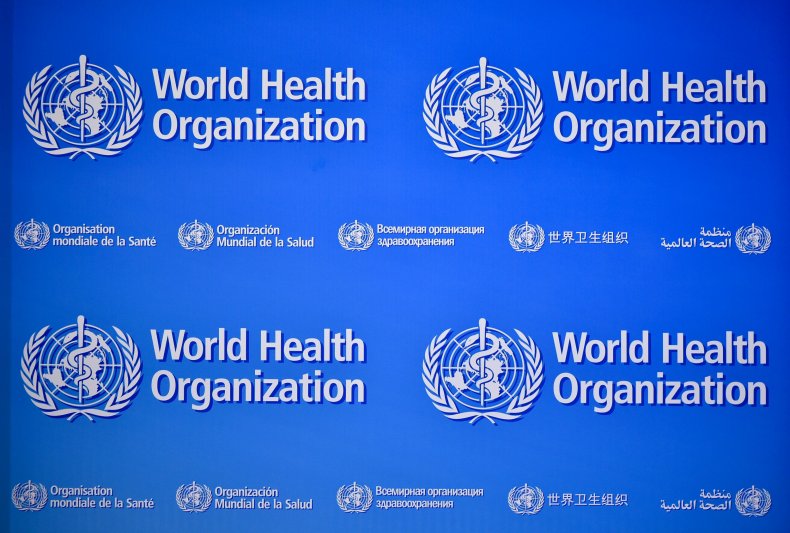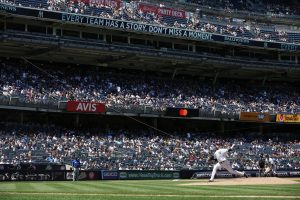A Chinese Foreign Ministry official has voiced Beijing’s concern over President Donald Trump’s decision to freeze U.S. funding for the World Health Organization, warning the move will undermine global efforts to defeat COVID-19 coronavirus.
Spokesperson Zhao Lijian—who last month was criticized for blaming the U.S. Army for the pandemic—told reporters at a Wednesday briefing the president’s decision will “weaken the WHO’s capabilities and undermine international cooperation,” according to Bloomberg.
Zhao added that China has “serious concerns” over the freeze, though said Beijing “will as always support the WHO in playing an important role in international public health and global anti-epidemic response.”
What may have fostered greater cooperation between Beijing and Washington has actually driven the two powers further apart, deepening existing animosities that have emerged as China becomes richer and more influential.
President Donald Trump initially praised the Chinese response to the crisis and lauded his close relationship with President Xi Jinping, but has since pivoted to blaming Beijing for the pandemic. China, meanwhile, has framed the Trump administration’s attacks as an effort to shift attention from its own inadequate response to the outbreak.
Trump announced Tuesday that the U.S. would freeze its contributions to the World Health Organization—of which it is by far the largest donor—for 60 to 90 days while his administration investigates its role in the supposed coronavirus cover-up. The president has accused the WHO of allowing China to hide the true extent and severity of its coronavirus outbreak.
Asked whether China would cover the funding shortfall, Zhao said the country “will look into relevant issues according to the needs of the situation.”
The president has claimed that the WHO “really blew it” in its response to the crisis. The body raised the alarm at the end of January, declaring a “public health emergency of international concern.” That was a day before Health Secretary Alex Azar announced a public health emergency, and weeks before Trump declared a national emergency.
A month later, the president was still claiming on Twitter that the COVID-19 outbreak “is very much under control in the USA.” The U.S. now has the largest number of cases and deaths—601, 472 and 24,429, respectively, according to Johns Hopkins University—of any nation.
Trump took particular issue with the WHO’s opposition to his limited travel ban on flights from China. “Fortunately I rejected their advice on keeping our borders open to China early on,” Trump tweeted. “Why did they give us such a faulty recommendation?”
The WHO argued at the time that such a measure would not help during a pandemic and may disrupt the movement of vital medical supplies.
The president has falsely claimed that he banned all travel from China, The Associated Press noted. The January 31 measure only temporarily blocked entry by foreign nationals who had traveled in China within the previous 14 days, and still allowed immediate family of U.S. citizens and permanent residents to enter.
Americans returning from China were allowed back after enhanced screening at selected ports of entry and for 14 days after, though asymptomatic infectees may not have been picked up in screening. Regardless, the virus was already in the U.S. by mid-January, spreading near unchecked through community transmission.
China has sought to escape blame for the pandemic. The country has now stemmed its own outbreak and is pivoting to assist other nations with medical personnel and supplies. But the Chinese Communist Party tried to silence whistleblowers who first warned of the virus in the central city of Wuhan and was slow in notifying the WHO of the situation.
A U.S. intelligence report sent to the White House last month also suggested that the regime concealed the true number of coronavirus deaths and infections.
In his Wednesday press conference, Zhao pushed back against an AP report suggesting Chinese leaders waited six days in January before Xi informed the public of the severity of the COVID-19 outbreak. During these six days, millions of people traveled from Wuhan to the rest of China and around the world.
Zhao said he had not read the report, but argued its conclusions were “unfair” and maintained that China updated the WHO and acted in a “timely manner.”



















